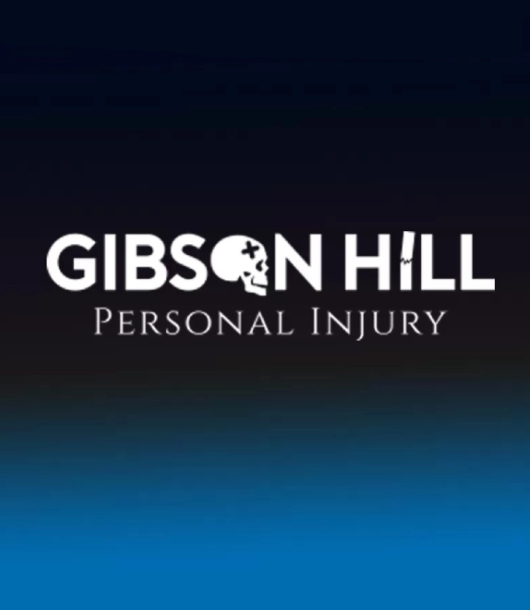When a loved one enters a nursing home, families trust that facility staff will provide safe, dignified care. Unfortunately, abuse and neglect occur in Texas nursing facilities far too often. If you suspect your family member has experienced abuse or neglect, understanding your legal options for nursing home abuse victims in Texas is the first step toward justice and compensation.
Nursing home abuse affects thousands of Texas seniors annually. Victims and their families have legal recourse under Texas law. This guide explains the signs of abuse, your rights, the steps to take immediately, and how pursuing legal action can hold facilities accountable while securing compensation for your loved one’s suffering. At Gibson Hill Personal Injury, we help families handle these difficult situations and recover the compensation they deserve. Contact our Houston personal injury attorneys today for a free consultation.
Why Choose Gibson Hill Personal Injury
When your loved one has suffered nursing home abuse, choosing the right attorney matters. Gibson Hill Personal Injury brings experience, dedication, and a track record of holding facilities accountable. Our firm specializes in catastrophic injury cases and has recovered millions for injured Texans.
Direct Attorney Involvement
You work directly with Ty Gibson and Brett Hill, the firm’s founders and principal attorneys. Unlike larger firms that delegate cases to junior associates, Gibson Hill Personal Injury ensures that experienced trial lawyers handle your case from start to finish. This personalized approach means your case receives the attention it deserves. Both attorneys are committed to personal injury representation and have extensive trial experience.
Catastrophic Injury Expertise
Gibson Hill Personal Injury focuses on catastrophic injuries and wrongful death cases. Nursing home abuse often results in severe, permanent injuries. The firm understands how to value these cases, work with medical experts, and present evidence to juries. Ty Gibson was selected to The National Trial Lawyers Top 40 Under 40, recognizing his trial advocacy skills and professional achievements. This external recognition demonstrates his commitment to excellence in personal injury law.
Contingency Fee Structure
Gibson Hill Personal Injury handles nursing home abuse cases on contingency. You pay no upfront fees. The firm only recovers a fee if you receive compensation. This arrangement removes financial barriers and aligns the firm’s interests with yours—both want the best possible outcome for your family. Learn more about contingency fees and how they work.
Thorough Investigation
Gibson Hill Personal Injury investigates nursing home abuse cases comprehensively. The firm obtains medical records, facility records, staffing documents, training records, and prior complaints. Attorneys interview witnesses, consult medical experts, and build cases backed by evidence. This thorough approach is essential for gathering key evidence after an incident.
Trial Experience
Some cases require a jury to hear the evidence and decide liability and damages. Gibson Hill Personal Injury‘s attorneys have tried cases and understand how to present evidence persuasively. If settlement negotiations fail, the firm is prepared to advocate for your family in court. Understanding why some personal injury cases go to trial helps you prepare for the litigation process.
Texas Advocacy
With offices in Houston and Austin, Gibson Hill Personal Injury serves Texas families. The firm understands Texas nursing home law, local facility practices, and how juries in Texas evaluate nursing home abuse cases. This local knowledge translates to better outcomes for clients. Learn more about Gibson Hill Personal Injury‘s approach on our about page and contact us for a free consultation.
Recognizing Signs of Nursing Home Abuse and Neglect
Identifying abuse requires vigilance. Nursing home abuse takes many forms, and victims may not always communicate what has happened to them. Watch for these warning signs:
Physical indicators include unexplained injuries, bruises in unusual patterns, broken bones, pressure ulcers (bedsores), poor hygiene, malnutrition, and dehydration. Pressure ulcers develop when residents remain immobilized without proper repositioning. This indicates neglect. Traumatic brain injuries from falls and spinal cord injuries from abuse are also common in nursing home cases.
Behavioral changes often signal emotional or psychological abuse. Notice if your loved one becomes withdrawn, fearful, anxious, depressed, or reluctant to discuss their day. Sudden personality shifts warrant investigation. These psychological effects can be as damaging as physical injuries and are recognized in personal injury claims.
Financial red flags include missing belongings, unauthorized withdrawals from bank accounts, or sudden changes to wills or power of attorney documents. Financial exploitation frequently accompanies other forms of abuse. This type of elder abuse requires immediate documentation and reporting to authorities.
Neglect indicators extend beyond physical signs. Poor nutrition, untreated medical conditions, missed medications, and lack of personal care all constitute neglect. Facilities have a duty to provide adequate staffing, supervision, and medical attention. When facilities fail to meet these standards, they may be liable for negligence claims.
Understanding Your Legal Rights in Texas
Texas law provides strong protections for nursing home residents. These protections establish clear standards that facilities must meet and create legal liability when they fail. Understanding these rights is essential before pursuing legal action against a nursing home.
The Texas Health and Safety Code sets minimum standards for nursing home operations. These include staffing ratios, infection control, medication management, and resident safety protocols. Violations of these standards form the basis for legal claims. The code specifically addresses long-term care facility requirements that protect vulnerable residents.
The Texas Human Resources Code Chapter 48 requires long-term care facilities to protect residents from abuse, neglect, exploitation, and mistreatment. Facilities must investigate complaints, report suspected abuse to authorities, and maintain safe environments. This statute creates a legal duty that, when breached, allows victims to pursue compensation.
The Nursing Home Reform Act establishes additional protections. These include residents’ rights to dignity, privacy, autonomy, and quality care. Federal standards apply to all Medicare and Medicaid-certified facilities. These protections are enforced through CMS regulations that facilities must follow.
Your loved one has the right to a safe environment free from abuse and neglect. When facilities breach these duties, victims and families can pursue legal action. Texas law recognizes that nursing home abuse causes real harm—physical injuries, emotional trauma, and financial losses—and allows victims to recover compensation. This is why consulting with experienced nursing home abuse attorneys is critical.
The statute of limitations for nursing home abuse claims in Texas is generally two years from the date of discovery of the injury. This means you have two years from when you discovered (or reasonably should have discovered) the abuse to file a lawsuit. Time is critical—evidence can be lost, memories fade, and witnesses become unavailable.
Immediate Steps to Take If You Suspect Abuse
If you suspect nursing home abuse, act quickly. These steps protect your loved one and preserve evidence for potential legal action. Taking immediate action can mean the difference between a strong case and a weak one.
Document everything. Write down dates, times, specific incidents, injuries observed, behavioral changes, and names of witnesses. Take photographs of visible injuries, poor conditions, or unsanitary environments. Preserve all medical records, incident reports, and facility communications. This documentation is important for building a strong personal injury case.
Report to facility management. Notify the nursing home administrator and director of nursing in writing. Request written acknowledgment of your report. This creates a paper trail showing the facility knew about the problem. Written reports are essential evidence in personal injury lawsuits.
Contact Texas authorities. Report suspected abuse to the Texas Health and Human Services Commission (HHS). You can file a complaint online or by phone. If the facility receives Medicaid funding, also report to the Texas Attorney General’s office. Local law enforcement should be contacted if you suspect criminal abuse. These agencies investigate and document abuse, creating official records that support legal claims.
Seek medical evaluation. Have your loved one examined by a physician outside the facility. Independent medical documentation establishes the nature and extent of injuries. This is crucial for legal claims. Medical evidence is often the strongest proof in personal injury cases.
Consult a nursing home abuse attorney. An experienced attorney investigates thoroughly, gathers evidence, and advises you on legal options. Many attorneys work on contingency—you pay nothing unless you recover compensation. Contact Gibson Hill Personal Injury at 713-659-4000 to discuss your case. Our attorneys understand how to calculate the value of a personal injury claim and will fight for maximum compensation.
Types of Legal Claims Against Nursing Homes
Nursing home abuse victims can pursue several types of legal claims, depending on the circumstances. Understanding these claim types helps you know what compensation you may be entitled to recover.
Negligence claims allege that the facility failed to provide adequate care, supervision, or staffing. Nursing homes have a duty of care to residents. When they breach that duty—through understaffing, inadequate training, or failure to follow care plans—and residents are harmed, negligence liability applies. These are among the most common personal injury claims in nursing home cases.
Abuse claims address intentional harm. Physical abuse, sexual assault, and emotional abuse constitute intentional torts. These claims often carry higher damages because they involve deliberate misconduct. Intentional abuse claims can result in punitive damages in addition to compensatory damages.
Wrongful death claims arise when abuse or neglect results in a resident’s death. Families can recover for the loss of their loved one, including funeral expenses, lost companionship, and the pain and suffering the resident endured. Gibson Hill Personal Injury has extensive experience handling wrongful death cases and understands the unique challenges these claims present.
Premises liability claims address unsafe conditions. Falls caused by inadequate lighting, unsecured handrails, or cluttered hallways can form the basis for premises liability claims. These claims focus on the facility’s failure to maintain safe premises.
Breach of contract claims allege that the facility failed to provide the level of care promised in the admission agreement or care plan. These claims are based on the contractual relationship between the resident and the facility.
Nursing homes carry liability insurance and employ legal teams to defend against claims. An experienced attorney levels the playing field, investigating thoroughly and building a strong case. Gibson Hill Personal Injury‘s attorneys have tried cases and understand how to present evidence persuasively to juries.
Compensation Available to Victims
Texas law allows nursing home abuse victims to recover several types of damages. Understanding what compensation is available helps you understand the true value of your claim.
Economic damages compensate for quantifiable losses: medical expenses, rehabilitation costs, medications, therapy, lost wages, and future medical care. These damages are calculated based on actual bills and documented losses. Economic damages vs. non-economic damages are treated differently in Texas law, and understanding this distinction is important.
Non-economic damages address pain and suffering, emotional distress, loss of enjoyment of life, and diminished quality of life. While harder to quantify, these damages recognize the profound impact abuse has on victims and families. Loss of consortium damages may also be available to family members.
Punitive damages may be available when the facility’s conduct was reckless, grossly negligent, or intentional. Punitive damages punish the wrongdoer and deter similar conduct by other facilities. Texas allows substantial punitive damages in appropriate cases.
Damages are calculated based on the severity of injuries, the victim’s age and life expectancy, medical evidence, expert testimony, and the facility’s degree of fault. Catastrophic injuries—such as severe infections from bedsores, traumatic brain injuries from falls, or spinal cord injuries—result in substantial compensation. Understanding how much to expect from a personal injury settlement can help you evaluate settlement offers.
Frequently Asked Questions
What is the statute of limitations for filing a nursing home abuse lawsuit in Texas?
The statute of limitations is generally two years from the date you discovered (or reasonably should have discovered) the injury. This discovery rule means the clock starts when you knew or should have known about the abuse, not necessarily when it occurred. However, exceptions exist for certain situations. Consult an attorney immediately to ensure your claim is timely. Understanding how long a personal injury lawsuit takes can help you plan your case strategy.
How do I report nursing home abuse to Texas authorities?
You can report suspected abuse to the Texas Health and Human Services Commission (HHS) online or by phone. If the facility receives Medicaid funding, also file a complaint with the Texas Attorney General’s office. Local law enforcement should be contacted if you suspect criminal abuse. Reporting creates an official record and triggers investigations. These reports are important evidence in personal injury cases.
Can I sue a nursing home for neglect even if there was no intentional abuse?
Yes. Negligence claims do not require proof of intentional wrongdoing. If the facility failed to provide adequate care, supervision, or staffing, and your loved one was harmed as a result, you have a viable negligence claim. Neglect is one of the most common bases for nursing home abuse lawsuits. Understanding the discovery phase of a personal injury case can help you understand how these claims are proven.
What evidence do I need to prove nursing home abuse?
Strong evidence includes medical records documenting injuries, photographs of injuries or poor conditions, facility records and incident reports, witness testimony from staff or other residents, expert medical opinions, staffing records showing inadequate staffing, and prior complaints about the facility. An attorney gathers and organizes this evidence to build a strong case. Gathering key evidence immediately after discovering abuse is critical.
How much does it cost to hire a nursing home abuse attorney?
Most nursing home abuse attorneys, including Gibson Hill Personal Injury, work on contingency. You pay no upfront fees. The attorney’s fee comes from the settlement or judgment you receive. This arrangement ensures you can afford legal representation regardless of your financial situation. Learn more about how much lawyers usually take from settlements.
What if the nursing home tries to settle quickly?
Do not accept a quick settlement without legal review. Insurance companies often offer low initial settlements hoping families will accept without understanding the true value of their claims. An experienced attorney evaluates settlement offers against the potential value of your case. Many initial offers are substantially below what victims deserve. Gibson Hill Personal Injury negotiates aggressively for fair compensation that reflects the full extent of your loved one’s injuries and suffering. Understanding how to negotiate a settlement with an insurance claims adjuster can help you prepare for negotiations.
Take Action Today
Don’t know what to do if your loved one has experienced nursing home abuse? If you suspect your loved one is experiencing abuse in a Texas nursing home, don’t wait. Contact Gibson Hill Personal Injury today for a free consultation. Our team of attorneys understand the devastating impact of nursing home abuse. We are committed to protecting your family’s rights and securing the compensation your loved one deserves.
Serving Texas families with compassion and aggressive representation. Call us now!




